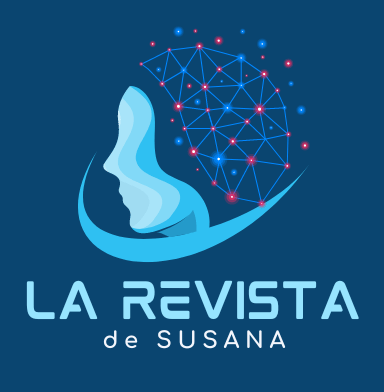Future Possibilities: Advancements in VR and AI Synergy
The field of virtual reality (VR) has seen tremendous advancements in recent years, and when combined with artificial intelligence (AI), the possibilities become even more exciting. AI possesses the ability to deeply understand user behavior and preferences, which can be leveraged to create more immersive and personalized virtual experiences. With the use of AI algorithms, VR systems can adapt in real-time to user inputs, offering a more seamless and engaging user experience. This synergy between VR and AI has the potential to revolutionize various industries such as gaming, education, healthcare, and training, among others.
One area where VR and AI collaboration holds immense promise is in the healthcare industry. VR simulations combined with AI algorithms can provide medical professionals with realistic scenarios to practice complex procedures in a safe and controlled environment. AI can analyze the performance of doctors, nurses, and other healthcare providers in these virtual scenarios, offering personalized feedback and suggesting areas for improvement. This combination of VR and AI can significantly enhance the training process, ultimately leading to better patient outcomes. Additionally, VR can also be used in therapy and rehabilitation, providing a more interactive and engaging experience for patients. The integration of AI can further customize these therapies based on individual patient needs, ensuring optimal results.
• VR and AI can create more immersive and personalized virtual experiences
• AI algorithms can adapt VR systems in real-time to user inputs, enhancing the user experience
• Synergy between VR and AI has the potential to revolutionize industries such as gaming, education, healthcare, and training
In the healthcare industry:
• VR simulations combined with AI algorithms provide realistic scenarios for medical professionals to practice complex procedures in a safe environment
• AI analyzes performance and offers personalized feedback for improvement
• Integration of VR and AI enhances training processes leading to better patient outcomes
• VR can be used in therapy and rehabilitation for a more interactive experience
• Integration of AI customizes therapies based on individual patient needs
Conclusion: The Promising Future of VR and AI Collaboration
Virtual Reality (VR) and Artificial Intelligence (AI) are two rapidly advancing technologies that are set to revolutionize numerous industries. When combined, the synergy between VR and AI holds immense potential for the future. The collaboration between these two technologies can lead to enhanced immersive experiences, smarter AI-powered virtual worlds, and unprecedented advancements in various fields.
One of the most promising aspects of VR and AI collaboration is the creation of highly realistic and personalized virtual experiences. AI can analyze vast amounts of data and user preferences to generate personalized content within the virtual world. By understanding individual preferences and adapting in real-time, AI-powered VR experiences can provide a level of immersion that was previously unattainable. Whether it’s in gaming, training simulations, or virtual travel, this personalized approach has the potential to revolutionize the way we interact with virtual environments.
Furthermore, the combination of VR and AI can lead to the development of smarter virtual worlds. AI algorithms can analyze user interactions and behaviors within the VR environment, learning from them and adapting the virtual world accordingly. This dynamic adaptation can result in virtual environments that feel more realistic, responsive, and engaging. From intelligent NPCs (non-playable characters) in games to realistic training scenarios, the possibilities for creating immersive and interactive virtual experiences are vast.
In conclusion, the collaboration between VR and AI opens up a new realm of possibilities for the future. The potential for enhanced personalized experiences and smarter virtual worlds has the potential to shape industries ranging from entertainment and gaming to education and healthcare. As VR and AI continue to advance, we can expect to see exciting developments that push the boundaries of what is possible in the realm of virtual experiences. The promising future of VR and AI collaboration holds great potential for creating unimaginable immersive and intelligent worlds that cater to individual needs and preferences.
How do VR and AI work together?
VR and AI work together by leveraging AI algorithms and technologies to enhance the immersive experience and capabilities of virtual reality environments.
What are some future possibilities of VR and AI synergy?
Some future possibilities include more realistic and interactive virtual experiences, personalized and intelligent content recommendations, advanced data analytics within virtual environments, and improved user interactions with virtual objects.
What advancements can we expect in the collaboration between VR and AI?
Advancements may include more sophisticated AI algorithms for better natural language processing and understanding user intentions, enhanced computer vision for more realistic virtual visuals, and improved predictive analytics for personalized virtual experiences.
How does AI contribute to the development of VR technology?
AI contributes to the development of VR technology by enabling virtual environments to respond intelligently to user actions, analyze and interpret user data for personalized experiences, and simulate realistic behaviors and interactions.
What benefits can be gained from the collaboration between VR and AI?
The collaboration between VR and AI can lead to improved user immersion, increased personalization, enhanced interactivity, more efficient data analytics, and the creation of new innovative applications and experiences.
Will VR and AI collaboration replace human interaction?
No, VR and AI collaboration is not intended to replace human interaction. Instead, it aims to enhance and augment human experiences by providing more immersive and intelligent virtual environments.
What industries can benefit from the collaboration between VR and AI?
Industries such as gaming, entertainment, education, healthcare, architecture, manufacturing, and training and simulation can all benefit from the collaboration between VR and AI.
How will VR and AI collaboration shape the future?
VR and AI collaboration has the potential to revolutionize the way we interact with technology, providing more immersive and personalized experiences, advancing various industries, and opening up new possibilities for innovation and creativity.
